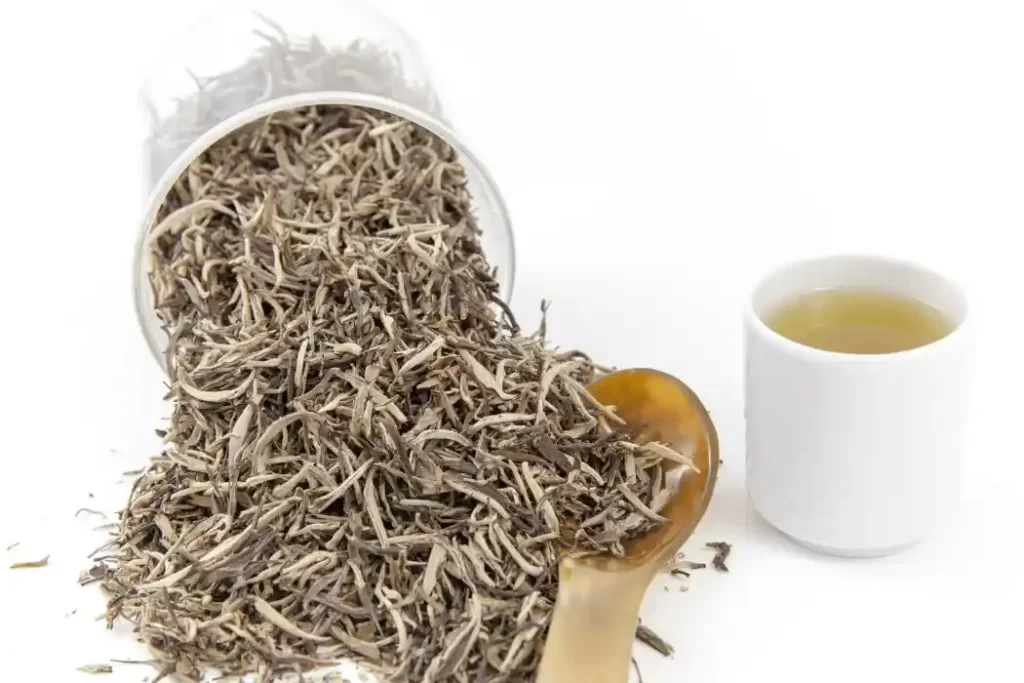Unveiling the truth behind the caffeine content of white tea has become a subject of curiosity for tea enthusiasts and health-conscious individuals alike. The question that often arises is, Does white tea have caffeine? In this article, we will embark on a journey of discovery to unravel the mysteries surrounding white tea’s caffeine content. By examining its production process, comparing it to other teas, and exploring the potential health benefits, we will uncover the facts and provide valuable insights into this intriguing beverage. In our quest to uncover the truth about white tea’s caffeine content, we explore not only its potential effects on the body but also its role in promoting total health and fitness. So, let’s delve into the realm of white tea and separate fact from fiction when it comes to caffeine.
Tea, a beloved beverage for centuries, comes in various forms and flavors. Each type of tea undergoes specific processing methods, resulting in distinct characteristics and caffeine content. White tea, often revered as the purest and least processed among teas, holds a reputation for its subtle taste and potential health advantages. However, the extent to which white tea contains caffeine remains a topic of debate and curiosity.
What is white tea?
Before we explore white tea’s caffeine content, it’s crucial to understand the tea itself. White tea originates from the Camellia sinensis plant, the same plant responsible for producing other tea types such as green, black, and oolong tea. What sets white tea apart is the minimal processing it undergoes. The tea leaves are carefully harvested at an early stage, typically consisting of young buds and leaves covered in fine white hairs, hence the name “white tea.”

The caffeine content in white tea
To comprehend the caffeine content in white tea, we must examine the process of its production. Unlike black tea, which undergoes extensive oxidation, white tea experiences minimal oxidation. The leaves are plucked and then gently withered and dried, preserving their natural composition. It is this minimal processing that contributes to the delicate flavor and potentially lower caffeine content.
When comparing caffeine levels between tea types, it’s important to note that the caffeine content can vary based on several factors. Generally, white tea is considered to have lower caffeine levels compared to black and green tea, but it still contains a certain amount of caffeine.
Read more about Does Sprite have caffeine?
Health benefits of white tea
Beyond caffeine concerns, white tea offers numerous health benefits. Its delicate flavor profile and potential therapeutic properties make it a popular choice among health-conscious individuals. Let’s explore some of the potential advantages associated with white tea consumption:
Antioxidant properties
White tea is rich in antioxidants, which help combat free radicals in the body. These antioxidants, such as polyphenols, can provide protection against oxidative stress and contribute to overall well-being.
Boosting immune system
White tea contains natural compounds like catechins and flavonoids, which are known for their potential immune-boosting properties. These compounds may help strengthen the body’s defense mechanisms, enhancing its ability to fight off infections and illnesses. By incorporating white tea into your daily routine, you can potentially give your immune system a natural boost and support overall wellness.
Does white tea have caffeine less than other teas?
With its reputation as a milder and less processed tea variety, many people wonder if white tea offers a low-caffeine alternative to other teas. While white tea generally contains less caffeine compared to black and green teas, it’s essential to understand that the actual caffeine content can vary based on several factors. These factors include the specific type of white tea, the harvesting time, leaf quality, and even the steeping time and temperature during preparation.
The effects of caffeine on the body
Caffeine, a natural stimulant found in tea, coffee, and various other beverages, can have both positive and negative effects on the body. As a stimulant, caffeine can provide a temporary energy boost, increased alertness, and enhanced focus. However, it’s important to note that excessive caffeine consumption or sensitivity to caffeine can lead to side effects such as insomnia, nervousness, and increased heart rate.
Factors affecting caffeine content in white tea
The caffeine content in white tea can vary based on several factors. One crucial factor is the harvesting time. Younger tea leaves and buds tend to contain higher caffeine levels compared to more mature leaves. Additionally, the quality of the tea leaves and the processing methods employed can influence the caffeine content. It’s also worth mentioning that the steeping time and temperature during tea preparation can impact the amount of caffeine extracted from the leaves.
Tips for enjoying white tea with lower caffeine content
If you’re looking to enjoy white tea while minimizing your caffeine intake, there are a few strategies you can employ. If you’ve ever wondered about white tea and its caffeine content, you may have asked yourself, Does white tea have caffeine? First, opt for white teas that are made from younger leaves and buds, as they generally contain less caffeine. Additionally, shorter steeping times and lower water temperatures can help reduce the caffeine extracted from the tea leaves. Experimenting with these variables can allow you to customize your tea-drinking experience to suit your preferences.
White tea vs. other types of tea
To better understand the caffeine content in white tea, it’s helpful to compare it to other popular tea types. Let’s take a closer look at how white tea fares against green tea, black tea, and oolong tea:
Green tea
Green tea, like white tea, is minimally processed, preserving its natural composition. However, compared to white tea, green tea often undergoes a slight amount of oxidation during processing, resulting in a slightly higher caffeine content.
Black tea
Black tea undergoes extensive oxidation, which leads to a more robust flavor and higher caffeine content compared to white tea. The oxidation process converts certain compounds, including catechins, into theaflavins and thearubigins, altering the overall composition of the tea leaves.
Oolong tea
Oolong tea falls between green and black tea in terms of oxidation. Its caffeine content can vary depending on the specific type and processing methods used. Generally, oolong tea contains more caffeine than white tea but less than black tea.
Is decaffeinated white tea an option?
If you prefer to avoid caffeine altogether, decaffeinated white tea may be a suitable choice to consider. Decaffeination processes can effectively remove a significant portion of the caffeine present in tea leaves while still retaining the flavor and potential health benefits. However, it’s important to note that the decaffeination process can also affect some of the natural compounds and flavors in the tea. Therefore, it’s advisable to choose a reputable brand or source that utilizes gentle decaffeination methods to preserve the integrity of the tea as much as possible.
White tea and sleep quality
For individuals concerned about caffeine’s impact on sleep quality, white tea can be a favorable option. Due to its generally lower caffeine content compared to other teas, white tea is often considered a tea variety that is less likely to interfere with sleep patterns. However, personal sensitivity to caffeine can vary, so it’s essential to be aware of your own tolerance and avoid consuming white tea too close to bedtime if you’re particularly sensitive to caffeine’s stimulating effects.
The myth of caffeine-free white tea
While white tea is generally known for its lower caffeine content, it’s crucial to dispel the myth that white tea is entirely caffeine-free. As with any tea variety derived from the Camellia sinensis plant, white tea naturally contains caffeine, albeit in smaller amounts compared to some other types of tea. Therefore, individuals with specific caffeine restrictions or concerns should exercise caution and be mindful of their overall caffeine intake, even when opting for white tea.
White tea and caffeine sensitivity
If you are particularly sensitive to caffeine or have underlying health conditions that require you to limit caffeine consumption, it’s advisable to consult with a healthcare professional. They can provide personalized guidance and help determine the most suitable tea options for you, taking into account your specific needs and preferences.
The verdict: Is white tea a low-caffeine option?
In conclusion, white tea generally offers a lower caffeine content compared to black and green teas. Its delicate flavor, potential health benefits, and relatively milder caffeine content make it an appealing choice for tea enthusiasts. However, it’s important to note that the actual caffeine levels in white tea can vary based on factors such as harvesting time, leaf quality, and preparation methods. If you prefer to minimize caffeine intake further, you can explore decaffeinated white tea options. Remember to consider your personal caffeine sensitivity and consult a healthcare professional if needed to make informed decisions about your tea consumption.

















